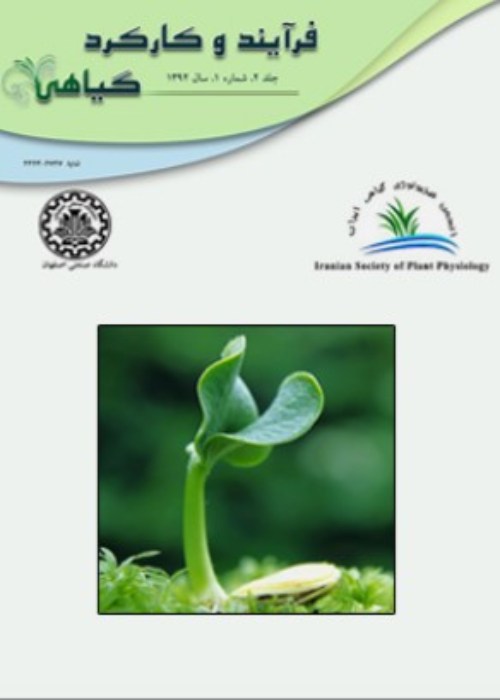Effect of sodium hydrosulfide on physiological and morphological traits of Amaranthus tricolor under deficit irrigation
Drought stress is one of the most important factors threatening the growth and development of ornamental plants around the world. Clearly, the use of active ingredients that increase drought resistance in plants is very important to reduce the economic losses of ornamental plants in landscapes. For this aim, a study was conducted to evaluate the effects of sodium hydrochulfide on Amaranthus plant (Amaranthus tricolor' early splendor') under deficit irrigation in a factorial design in the form of complete random design. Plants were treated with sodium bisulfide (0, 0.5, 1.5 mM) in the greenhouse for three weeks and then subjected to deficit irrigation (90, 80, 70, and 60% of field capacity). As the drought stress increased, the relative water content decreased, such that deficit irrigation (60% FC) reduced the relative water content by 78.9%. Sodium hydrochulfide reduced the negative effects of deficit irrigation on secondary metabolites (phenol and flavonoid) as well as osmotic regulator (proline), and a concentration of 1 mM increased stress resistance. Ion leakage was reduced by the use of sodium hydrochulfide during high deficit irrigation. 1 mM sodium hydrogen sulfide, with increased antioxidant activity, reduced malondialdehyde by 23.4% and 23% under deficit irrigation conditions 60 and 70% FC, respectively. The application of sodium hydrogen sulfide reduced the negative effects of deficit irrigation on Amaranthus growth traits by increasing secondary metabolites, osmotic adjustment, and antioxidant activity. Overall, our results suggested that the application of sodium hydrosulfide as a producer of hydrogen sulfide could be considered as a strategy to maintain the growth of ornamental plants under deficit irrigation.
- حق عضویت دریافتی صرف حمایت از نشریات عضو و نگهداری، تکمیل و توسعه مگیران میشود.
- پرداخت حق اشتراک و دانلود مقالات اجازه بازنشر آن در سایر رسانههای چاپی و دیجیتال را به کاربر نمیدهد.


